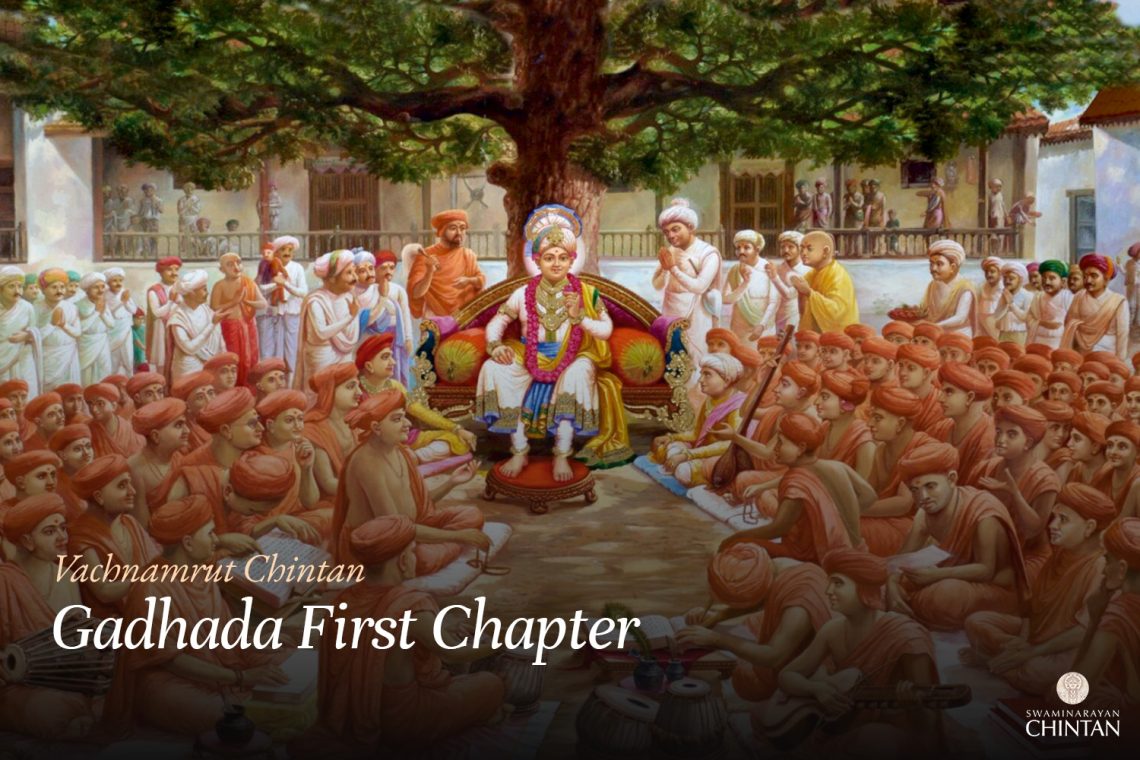Central Insights:
- A seeker should cultivate an understanding of the qualities of a true saint.
Key Points:
Virtues of a satpurush (true saint) are manifested in a seeker only when the seeker maintains divine intellect towards the satpurush and feels remorse for his own flaws and insignificance.
Explanation
In this Vachanamrut, Maharaj asks the saints if there are any such true saints who are detached from all worldly pleasures and have desires only for the bliss of God’s abode and the joy of His divine form. These saints engage in practices solely to attain these two objectives, even after death, and do not strive for any bodily comforts. How can a seeker develop the qualities of such a saint? Why do these qualities not manifest in seekers?
Muktanand Swami responds that if a seeker maintains divine intellect and follows the commands of a true saint, these qualities will manifest. Maharaj agrees but adds that understanding one’s own limitations and regretting them is crucial for these qualities to develop.
A true saint must be regarded as immensely great while considering oneself insignificant. When one deeply understands this, it leads to regret and humility. This process brings about detachment and the qualities beneficial for liberation. Without this, these qualities do not develop in a seeker.
Here, three levels of understanding for a seeker are discussed:
- Viewing the true saint as ordinary and oneself as having comparable intellect (underestimating the saint’s divinity).
- Recognizing that the true saint has greater insight and understanding in the path to liberation (acknowledging the saint’s qualities).
- Considering the true saint as divine and supremely great (divine intellect).
At first glance, it appears that having divine intellect regarding the true saint is the best and indeed necessary. However, based on the answer in the Vachanamrut, Maharaj adds something more significant. While Muktanand Swami also mentioned that possessing divine intellect leads to acquiring the qualities of a true saint, Maharaj further emphasizes that understanding one’s own insignificance in comparison to the true saint’s greatness is crucial. By acknowledging one’s own limitations and the greatness and divinity in the actions and decisions of the true saint, one progresses on the path of salvation. Simply recognizing the saint as great or divine is good, but to progress, one also needs the discernment of qualities.
Divine intellect without the discernment of qualities makes a seeker crippled, greedy for praise, and lacking in effort. On the other hand, discernment of qualities without divine intellect remains ineffective and fails to achieve the desired results. Therefore, even after acquiring divine intellect, the discernment of qualities is necessary. One should not assume that the discernment of qualities automatically follows divine intellect. It requires a separate effort to cultivate it, and only then do the qualities of a true saint manifest within.
Conversely, if one holds a trivial perception of the true saint, good qualities do not develop. Even if they do, they eventually fade away. When one starts judging the true saint using their own limited or worldly qualities, it results in developing similar flaws within oneself. This leads to a downfall on the path to salvation as it generates a trivial perception of the true saint.
Glossary
| Vairagya – Detachment A state of non-attachment to worldly desires, leading to inner purity and spiritual progress. |
| Discernment of Qualities – The ability to recognize and acknowledge the virtues of a true saint. Recognizing the spiritual qualities in God and His devotees, even when they appear ordinary outwardly. This awareness strengthens faith and devotion. |
| Satpurush – A true saint or spiritual guide |
| Trivial Perception – Viewing a true saint as ordinary or underestimating their greatness. |

